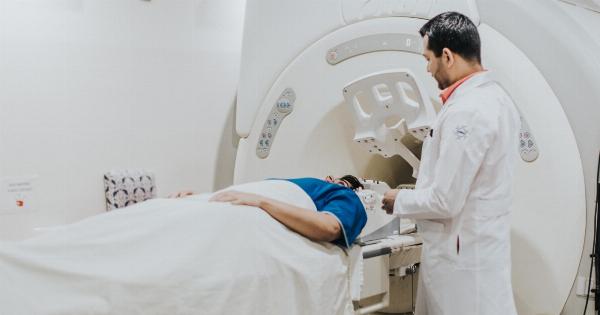Grief is a natural response to loss, and losing a spouse is one of the most devastating experiences a person can go through.
The emotional pain and anguish can be overwhelming, but what many don’t realize is that grief can also take a toll on your physical health. Understanding the impact grief can have on your body is crucial in managing the healing process and taking care of yourself during this difficult time.
Physical Symptoms of Grief
Grief affects individuals differently, but there are common physical symptoms that many people experience after the loss of a spouse:.
1. Fatigue: Losing a spouse is emotionally draining and can lead to extreme fatigue. The sadness and stress can disrupt your sleep patterns, leaving you exhausted and lacking in energy.
2. Loss of Appetite: Grieving can cause a loss of interest in food or a decrease in appetite. This can lead to unintentional weight loss and a lack of essential nutrients that are necessary for maintaining good health.
3. Weakened Immune System: The stress and emotional pain of losing a spouse can compromise your immune system, making you more susceptible to infections and illnesses.
4. Digestive Issues: Many grieving individuals experience digestive problems such as stomachaches, nausea, and constipation. Stress can disrupt the functioning of the digestive system and lead to discomfort.
5. Insomnia: Grief can make it difficult to fall asleep or stay asleep throughout the night. Insomnia can exacerbate other physical symptoms and affect your overall well-being.
6. Headaches: Frequent headaches or migraines are common during the grieving process. The tension and stress can cause muscle tension in the head and neck, leading to painful headaches.
7. Chest Pain: The emotional pain of losing a spouse can manifest as physical chest pain or tightness. This can be alarming, but it is a common symptom of grief.
8. Increased Heart Rate and Blood Pressure: The stress and sadness associated with grief can result in an increased heart rate and elevated blood pressure. It is important to monitor these levels and seek medical attention if necessary.
9. Weakened Immune System: Grief can weaken your immune system, making you more susceptible to infections and illnesses.
10. Joint and Muscle Pain: Many individuals experience muscular tension and joint pain when grieving. The emotional stress can cause physical tension in the body, leading to discomfort and pain.
Grief and Mental Health
While the physical symptoms of grief are evident, it is crucial to also address the impact on mental health. Losing a spouse can leave individuals feeling lonely, depressed, and anxious.
The weight of these emotions can further exacerbate physical symptoms and contribute to a decline in overall well-being. Seeking support from loved ones, joining a support group, or seeking professional therapy can be beneficial in managing the mental health aspects of grief.
Coping with Grief and Taking Care of Yourself
Dealing with grief is a personal and unique journey, but there are strategies you can employ to take care of yourself during this difficult time:.
1. Allow yourself to grieve: It is essential to acknowledge and accept your emotions. Allow yourself to experience the pain, sadness, and anger that accompanies grief.
2. Seek support: Surround yourself with loved ones who can provide comfort and understanding. Consider joining a support group where you can connect with others who are also grieving.
3. Take care of your physical health: Even though grief can make it challenging to maintain healthy habits, try to nourish yourself with nutritious food, engage in regular exercise, and get enough restful sleep.
Prioritizing self-care can help in managing physical symptoms and overall well-being.
4. Consider therapy: Seeking professional help can provide additional support in navigating the complexities of grief. Therapists can help you process your emotions, develop coping strategies, and guide you towards healing.
5. Practice self-compassion: Be kind to yourself during this time of loss. Understand that healing takes time, and it’s normal to have good and bad days. Treat yourself with patience and understanding.
The Importance of Seeking Help
Grief can be an isolating and overwhelming experience, but seeking help is crucial in managing the toll it takes on your health.
Whether it’s reaching out to friends and family or seeking professional therapy, reaching out for support is a sign of strength. Remember, healing takes time, and it’s essential to prioritize your physical and mental well-being as you navigate the complex emotions of losing a spouse.
Conclusion
Losing a spouse is one of the most challenging experiences a person can endure. The grief that follows can take a toll not only on your emotional well-being but also on your physical health.
It’s important to recognize and address the physical symptoms of grief, such as fatigue, loss of appetite, weakened immune system, digestive issues, insomnia, headaches, chest pain, increased heart rate and blood pressure, joint and muscle pain, among others. Additionally, grief can also affect your mental health, leading to feelings of depression, anxiety, and loneliness.
Taking care of yourself during this time is crucial, and seeking support from loved ones or professionals can make a significant difference in the healing process. Remember, grieving is a personal journey, and it’s okay to seek help along the way.






























